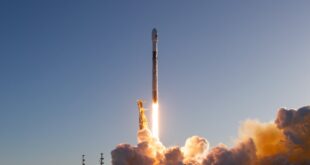
According to the International Space Station Flight Schedule published by NASA, U.S. astronauts will no longer be launched on the Russian Soyuz spacecraft in the fall of 2019. Instead of the Soyuz spacecraft, SpaceX and Boeing spacecraft are to be used. Their first crewed flights are scheduled for next year.
Both companies have received about $7 billion from NASA. The money has been spent on the spacecraft development and construction. In the long term, this investment will allow NASA to save on buying seats on the Soyuz. Today, one seat on the Russian spacecraft costs $80 million. However, according to Dmitry Baranov, the leading expert of the Finam Management company, in case of the loss of this income, the financial situation of Roscosmos will not be dramatically affected as U.S. astronauts go to the ISS not very frequently. There are two launches per year, and NASA is not the only space agency to use the Soyuz spacecraft. Therefore, Roscosmos should be able to keep contracts with other countries to transport their astronauts to the Station, thereby retaining profits, the expert believes.
However, the main U.S. budget control department has noted that SpaceX and Boeing may not have time to finish their spacecrafts preparations until next year, given that the deadlines have slipped. NASA’s contract with Roscosmos ends in November 2019, whereas the procedure for its extension should begin no less than three years before this date, especially at this time when relations between Russia and the United States remain tense.
The United States is Russia’s main partner in the ISS project, and such cooperation cannot be refused. If the SpaceX and Boeing spacecrafts are not ready by November 2019, Roscosmos will have to sell additional seats on the Soyuz, says Alexander Zheleznyakov, Academician of the Russian Academy of Cosmonautics. ‘Agreements will be made by Russia and NASA about some options. Maybe not the whole American crew would be delivered to the ISS. In any case, the matter would be dealt with by consensus. The ISS is an international project in which all participants, including Russia, have a vested interest. The fact that the U.S. are the main contributors to the project must be taken into account. That’s why arguing is not what we need’.
Boeing is currently developing not only a spacecraft for the delivery of the ISS crews but also space hotels. Each American spacecraft has one seat for tourists. Space tourism may also develop in Russia because travelers can take vacant seats on the Soyuz, says Ivan Moiseev, head of the Institute of Space Policy. But today we can only speak with certainty only about the astronauts from the United Arab Emirates, for whom several flights to the ISS will be booked. According to Moiseev, seats for tourists on the SpaceX and Boeing spacecraft are unlikely to be cheaper than the seats on the Soyuz today.
 SpaceWatch.Global An independent perspective on space
SpaceWatch.Global An independent perspective on space




